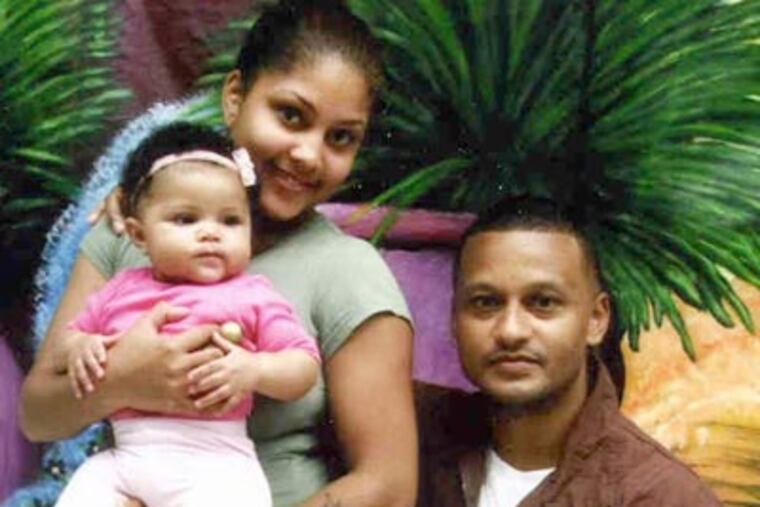Stu Bykofsky: Unanswered questions for the D.A. in Perez case
BECAUSE I ALWAYS do what I say I will do, after my last column on Marcus Perez, I contacted Seth Williams' office to request a meeting to discuss the case with the D.A., who had been vacationing and unable to comment when I wrote the original columns.

BECAUSE I ALWAYS do what I say I will do, after my last column on Marcus Perez, I contacted Seth Williams' office to request a meeting to discuss the case with the D.A., who had been vacationing and unable to comment when I wrote the original columns.
Williams' press secretary replied that the "office has no other comments." That's too bad, because there are other questions.
I am disappointed, and saddened, because Williams seemed like a guy more open to justice than some D.A.s crazed with the idea of incarceration as an end in itself.
I'm beating the Perez drum again because, despite the D.A.'s technicalities and legal hair-splitting, something's fishy here. Something isn't right.
The facts of the case:
In 1989, at age 18, Perez murdered a man while he and a friend were collecting a $150 debt. It was his first conviction.
After then-Common Pleas Judge Theodore McKee explained sentencing options in 1990, Perez pleaded guilty. McKee erroneously told him he could expect a sentence of 17 1/2 to 35 years, but Perez got life without possibility of parole. McKee, a judge known for his intellect and honesty, candidly told me that his instructions were "dead wrong." He added: "It's clear I led him to believe if he entered a guilty plea he would get out of prison after a long stay."
Perez, 40, is paying for that mistake, as he has for the 21 years he's been imprisoned without hope.
Despite pleas for resentencing filed by Perez, and despite the judge's admission that he erred, the D.A.'s office won't budge, happy to let an injustice continue.
The issue is not Perez's guilt. He's guilty. He admits it.
The issue is not whether he should have been sent away for a long time. He was.
To convict someone of a crime, the state must prove guilt beyond a reasonable doubt.
I doubt that a fair-minded person looking at the trial transcript would believe that Perez got the sentence he agreed to accept, beyond a reasonable doubt.
There is doubt. In a statement, the D.A.'s office acknowledged that the judge used "ambiguous" language. "Ambiguous" means that more than one meaning can be drawn from the judge's words. If there is ambiguity, there is doubt as to what was said and meant.
In its objections to Perez's many appeals, the D.A.'s office has leaned on the trial record. Suspiciously, the D.A.'s office got one word changed in that record - four years after the trial. That one-word "correction" undercut Perez's appeals. (See box, Page 4.)
Four judges I asked all said seeking a correction that way, so long after the trial, is highly unusual.
The change was requested by Jerome Teresinski, who was not the attorney handling the Perez case. He is now with the Department of Justice and ducking comment.
I want to know who asked Teresinski to request the "correction" and why. I asked the D.A.'s office, which declined to comment. Why?
Something's fishy here. It smells like someone's covering something up.
This reminds me of "The Hurricane," the 1999 movie about wrongfully convicted boxer Rubin "Hurricane" Carter. He got life after being railroaded by lying cops and prosecutors who helpfully went blind, deaf and dumb.
Perez's case is different because he is guilty, but he's finding injustice in the willful stubbornness of the D.A.'s office. You can slice this, you can dice this, you can fricassee it with technicalities of "the law," but you're still left with a bad taste in your mouth.
Had Perez known he was agreeing to a life sentence, he wouldn't have taken the plea arrangement. He'd be crazy to do that.
Had he gone to trial, yes, he faced a possible death sentence, but no one is executed in Pennsylvania unless they request it. Since, in reality, he was facing no worse than a life sentence, why would he have accepted a bargain that gave him life? It doesn't add up.
Perez isn't asking for a "Get Out of Jail Free" card; all he wants is the sentence he thought he was getting. He would still have to convince the parole board he is truly repentant and rehabilitated before he could be released.
D.A. Williams doesn't want to sit down with me, but turning his back won't make these questions go away: Who told Teresinski to request a "correction" of the record four years after the fact? Why?
And how can the D.A. look himself in the mirror and say Marcus Perez received justice when Judge McKee, now chief judge of the U.S. 3rd Circuit Court of Appeals, says he did not?
Email stubyko@phillynews.com or call 215-854-5977. See Stu on Facebook. For recent columns: